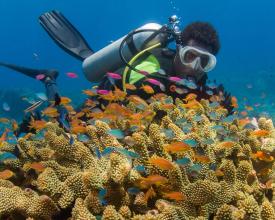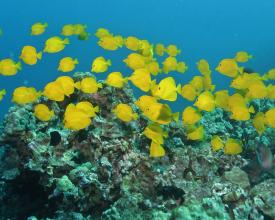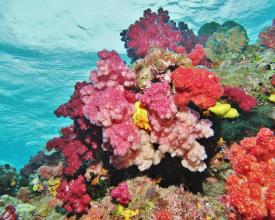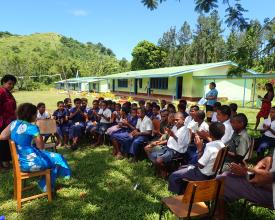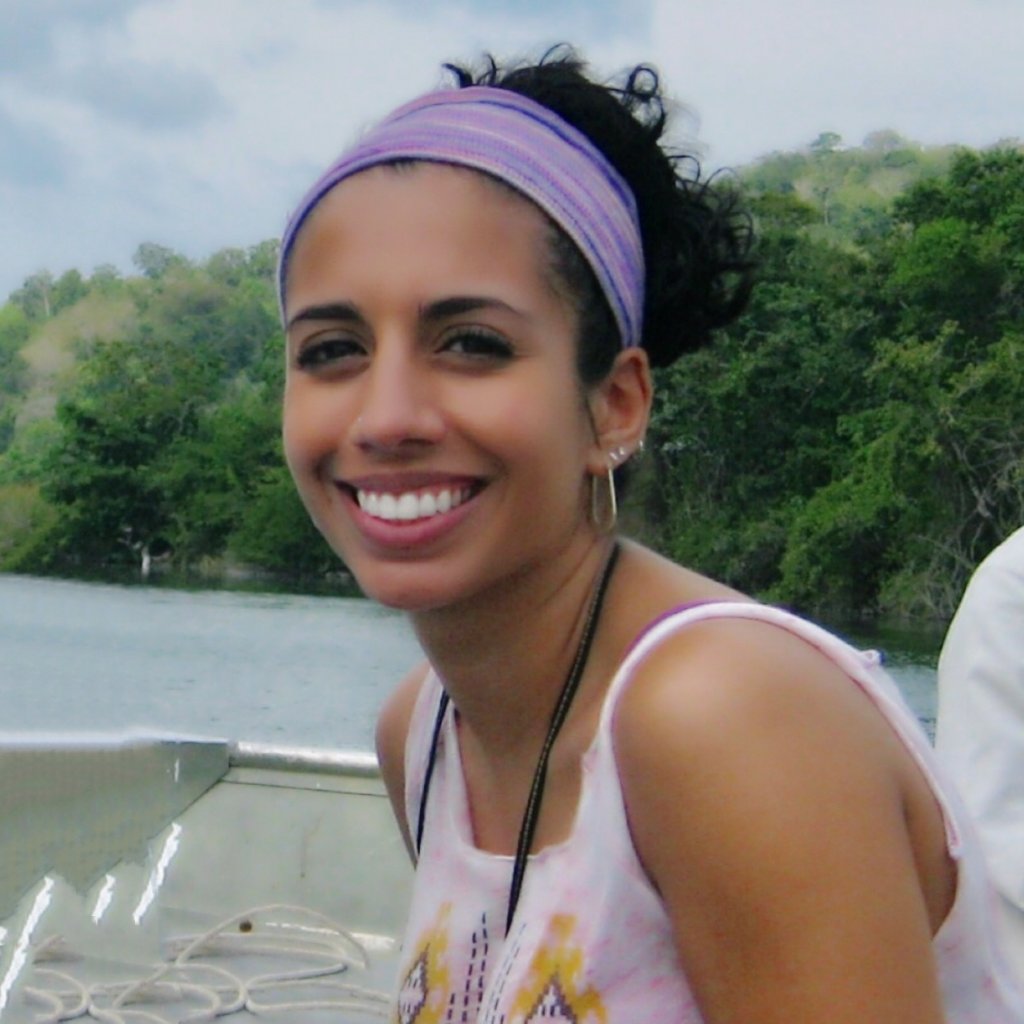Addressing unsustainable fishing in Fiji through improvements to LMMA management
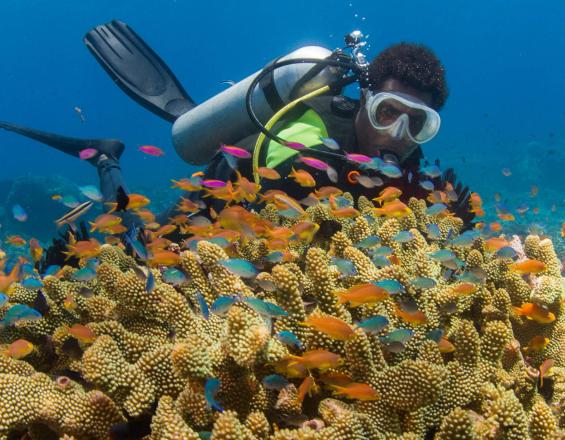
Fiji is a critical site for global coral reef conservation with 10,000 square kilometers of coral reef and an astounding 42 percent of the world’s coral species. Fiji’s coral reefs face significant global and local threats including climate change, overfishing and water pollution.
The Coral Reef Aliance’s (CORAL) vision for Fiji is an Adaptive Reefscape — a network of healthy reefs that can adapt to climate change because it is diverse, connected and large. Pacific island nations like Fiji are among the world’s most physically and economically vulnerable to climate change. By establishing management systems that mutually benefit communities and coral reefs, our work ensures that both are more resilient to environmental change.
CORAL has more than 15 years of experience working in Fiji on coral reef conservation, with an emphasis on effective management of Locally Managed Marine Areas (LMMAs).
Context
Challenges addressed
Unsustainable fishing and damage to reefs from anchors
Location
Process
Summary of the process
Building Blocks
Participatory planning process
Enabling factors
Lesson learned
Research and data collection
Enabling factors
Lesson learned
Development of management plan
Enabling factors
Lesson learned
Establish institutional capacity
Enabling factors
Lesson learned
Solidify sustainable financing for management
Enabling factors
Lesson learned
Impacts
Improving management of Fiji’s LMMAs reduces fishing pressure and curbs destruction of reef habitat. The Namena Marine Reserve, Fiji’s largest no-take LMMA and a top global dive site, forms part of the traditionally-owned fishing grounds (iqoliqoli) of the Kubulau community.
Over a decade ago, CORAL began working with this community, NGOs and private businesses to develop a sustainable management system to protect Namena's fisheries from overexploitation, while providing tangible benefits to the community. We helped establish a successful voluntary dive fee system for tourists visiting Namena, which generates funds to cover management costs and a scholarship program that has benefitted 200+ students. Namena also became Fiji's first anchor-free LMMA thanks to efforts by CORAL and partners. A study from the journal Coral Reefs found that sharks in Namena were 2-4 times more plentiful within the reserve than outside it.
Our work in Kubulau represents a replicable and scalable model for building an effective local management system with the financial means and staff capacity to achieve independence. As the Kubulau community has moved towards autonomous management, we've expanded our work to three new sites across Fiji, where we are applying our lessons learned and best practices from Kubulau to build durable management systems that provide both ecological and socioeconomic benefits.
Beneficiaries
- Local and regional coral reefs and associated marine life
- The communities that depend on Fiji's reef fisheries
- The Fijian government
- Coral reef ecologists and conservationists in the greater Indo-Pacific

